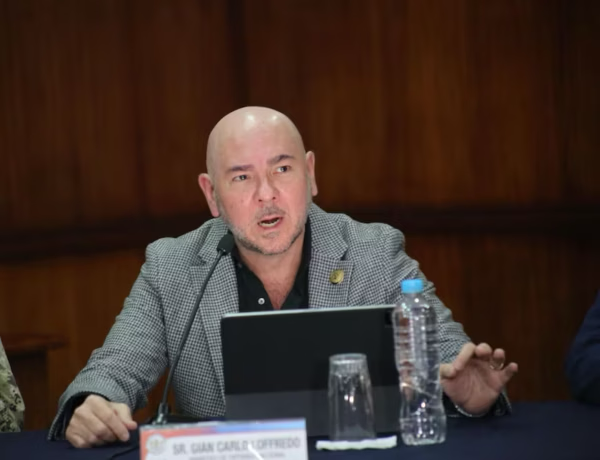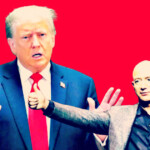
In the midst of a complex political and social scenario, Ecuador is fighting a battle that goes beyond weapons: a cultural battle.

Gian Carlo Loffredo, Minister of National Defense, has put a crucial issue on the table by warning about the impact of narcoculture, a phenomenon that is shaping values and behaviors in sectors of the population, especially the most vulnerable.
“Education, art and culture must be tools to build and not destroy,” said Loffredo in a recent press conference, stressing the importance of strengthening a national identity that counteracts the harmful effects of this cultural influence.
¡LA EDUCACIÓN ES EL ARMA MÁS PODEROSA, Y desde ahí también parte la seguridad! 👊🏻💪🏻
➡️En rueda de prensa, el ministro de Defensa Nacional, Gian Carlo Loffredo, mencionó: “Los terroristas hoy tienen su propia narcocultura, por eso nuestra identidad hoy debe estar más clara que… pic.twitter.com/eIBKvd4xbs
— Ministerio de Defensa Nacional del Ecuador (@DefensaEc) December 12, 2024
Narcoculture: The Silent Enemy. The term “narcoculture” refers to a system of values and practices that glorifies violence, crime, and the power associated with drug trafficking. This phenomenon is not exclusive to Ecuador, but its presence has intensified in recent years due to the increase in the activity of criminal groups in the country. From songs that exalt drug traffickers to lifestyles that imitate criminal figures, this culture permeates communities, challenging government efforts to establish a solid social fabric.
Recent studies indicate that young people are the most susceptible to this influence.
The lack of opportunities, combined with constant exposure to messages that romanticize drug trafficking, creates a perfect breeding ground for the acceptance of these anti-values.
Education and Culture: Weapons Against Drug Trafficking
For Loffredo, the solution is to invest in education as the most powerful weapon.
In his words: “A nation that does not invest in education inevitably ends up investing in weapons.” This statement highlights the urgency of implementing public policies that guarantee equal access to education, especially in rural and marginal areas, where the influence of narcoculture is strongest.
The Ministry of Defense has announced visits to schools run by the Armed Forces, with the aim of reinforcing training in values and security. These actions are an important step, but comprehensive efforts that include families, communities and cultural actors are needed to change the dominant narrative.
🔵 El ministro de Defensa, Gian Carlo Loffredo, declara: “Estamos en una batalla cultural”. Insta a los jóvenes artistas a crear “arte para el bien”. ¡Entérate de más en nuestras redes! #DefensaNacional #Cultura #Arte
Conoce más 👉https://t.co/gdwhK73a7p pic.twitter.com/kx5GM5gd5o— Ecuador Al Día 365 (@ecuadoraldia365) December 12, 2024
Art and Music: Channels of Resistance
In his speech, Loffredo highlighted the transformative power of music and art to inspire and edify. “Music can take us from fear to courage,” he said, calling on young artists to create content that promotes the common good.
However, this message comes in the midst of a controversy.
During a music festival in Quito, a cardboard cutout of President Daniel Noboa was displayed hanging, an act that some interpreted as an artistic expression and others as a veiled threat. This incident underlines the fine line between freedom of expression and violent language, a debate that must be addressed seriously to prevent culture from becoming a vehicle for confrontation.
Military Presence: Security on the Ground
While this cultural battle is being fought, the government also faces tangible challenges in the area of security.
In the province of El Oro, more than 2,500 soldiers and 50 tactical vehicles have been deployed to combat organized crime. This deployment reflects the seriousness of the situation, but also raises questions about the sustainability of these measures in the long term.
Building Identity to Defeat Crime
The fight against narcoculture in Ecuador cannot be limited to the use of force. It requires a comprehensive approach that combines education, art, public policies and security.
As Minister Loffredo pointed out, vulgarity is not art, and building a solid society involves promoting values that inspire progress and unity.
Ecuador has the opportunity to face this challenge with creativity and determination. But success will depend on political will, citizen participation and a genuine commitment to transform the country’s cultural landscape.
About The Author
Mamela Fiallo Flor
Mamela Fiallo Flor es profesora de lengua e historia, columnista y conferencista. Plasma su amor por la libertad y pasión por la verdad en cada nota.
Mamela Fiallo Flor is a language and history teacher, columnist, and speaker. She conveys her love for freedom and passion for truth in every piece she writes.
Subscribe to Our Newsletter



